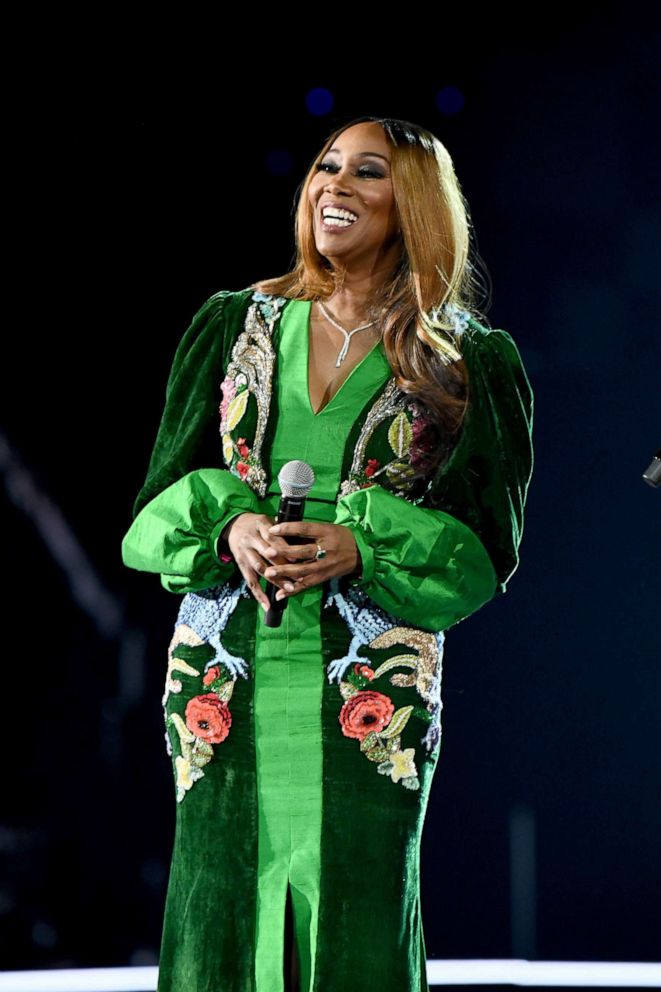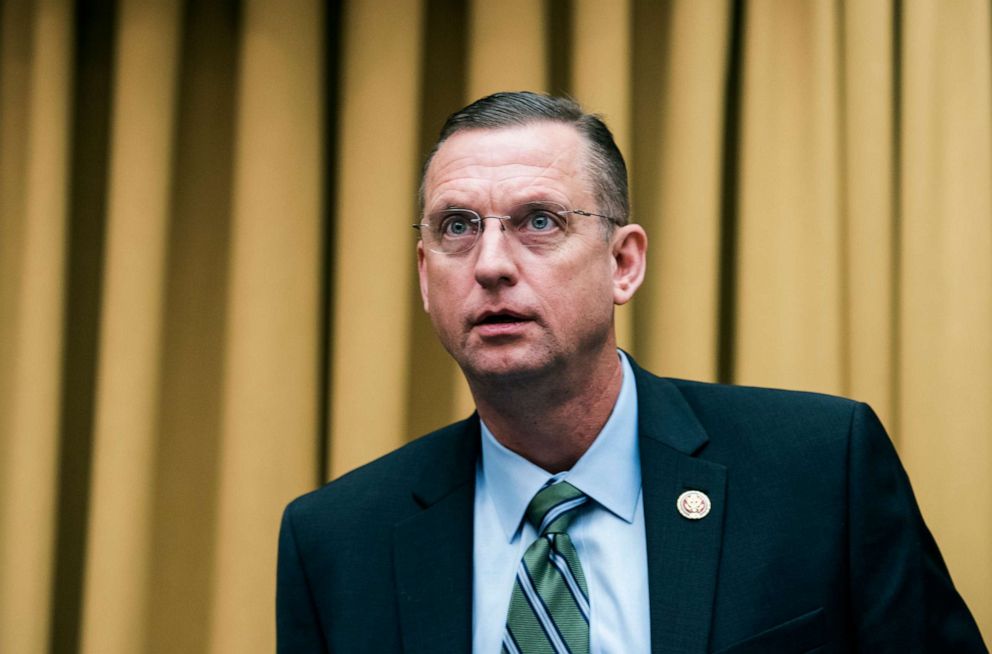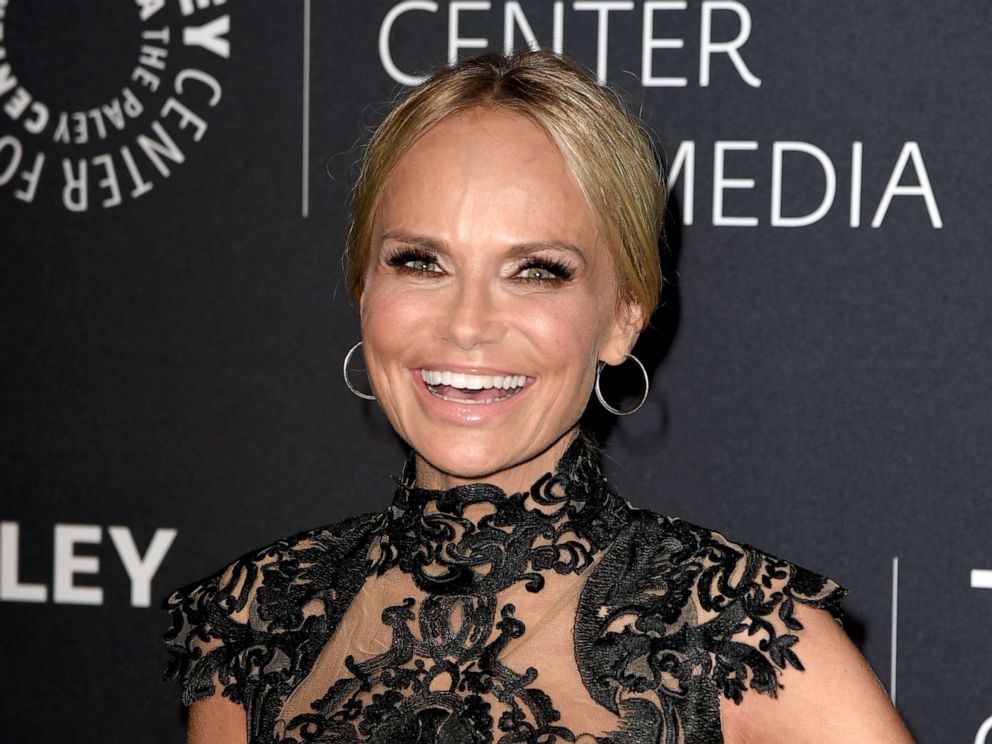Kristin Chenoweth on annual Grammys event in Washington, which is also set to honor Yolanda Adams, Rep. Hakeem Jeffries and Sen. Chuck Grassley
The "Wicked" actress is being honored for her work with children in Oklahoma.
As a young girl in Broken Arrow, Oklahoma, Kristin Chenoweth wanted to be a working actress.
She accomplished that, and more, by starring in the smash Broadway hit "Wicked" and by winning a Tony award in the musical "You're a Good Man Charlie Brown." Now, in a theater that bears her name, she gives her time to help children achieve what she did.
"I've always wanted to work to provide opportunities for youth to discover the role that music or musical theater or ballet can play in their lives, all of those things require music," Chenoweth told ABC News.
Chenoweth is set to be honored for her work with the theater in April at "Grammys on the Hill." The annual event kicks off the Recording Academy's advocacy efforts for the year. Gospel singer Yolanda Adams will also be honored at the event.

"I have such great respect for the academy's work in the music community itself through it's charities MusicCares and it's education programs," Chenoweth said.
It is humbling to be honored, she said and she is in "good company" with past honorees, who include Keith Urban, Little Big Town and the Zac Brown band.
The annual lobbying event also honors two members of Congress. This year, Rep. Hakeem Jeffries, D-N.Y., and Sen. Chuck Grassley, R-Iowa, are the honorees.
Grassley was a proponent of the Music Modernization Act, which combined the Allocation for Music Producers Act to provide royalties for music producers; the CLASSICS Act to provide royalties for songs created before 1972 from digital streaming services; and a watered-down Fair Play Act, which does not include the provision that broadcast radio should pay for songs. It was signed in October by President Donald Trump.
"Songwriters create music that resonates with every part of the human experience -- hopes, prayers and sorrows. Music is uniquely dynamic, and that’s why it was so important to pass the Music Modernization Act. This law is updating copyright laws to protect the rights and property of songwriters, which allows these creators to write the songs that will become the soundtracks for generations to come," Rep. Doug Collins, R-Ga., said in a statement to ABC News. He introduced the initial legislation in December 2017 and was a Grammys on the Hill honoree.

Chenoweth said that she was "pleased" the MMA passed unanimously, because "it protects the actual future of the music industry."
"In a country that is divided there is one thing that we're on the same page for and I think music is the unification. It always has been, there's music from all over the world that touch us in different ways," she said.
This year, the recording academy hopes to get legislation passed that addresses the so called FM/AM loophole.
Radio stations do not pay for royalties to play songs over the air -- a practice that needs to change Chief Industry, Government and Member Relations Officer of the Recording Academy Darryl Friedman told ABC News.
"The music community has had a lot to celebrate over the past year with the passage of the Music Modernization Act. The accomplishments of the MMA now shine a bright spotlight on one key area that must still be resolved: the need for artists to be paid for radio airplay. Terrestrial radio is the only platform in America still not paying artists, and the US is the only developed country in the world where this is allowed to exist. Congress can use the same leadership and consensus building to address this issue as it did with the MMA, and that will be a key message at Grammys on the Hill," Friedman said.

Chenoweth said the award means so much to her because music has shaped her life. She teaches "Broadway Bootcamps" at the theater in Oklahoma and told ABC News that she wants to show children that the theater could be a "viable" career.
"As creators we know how arts can have an impact on our youth," she said.
She has also pushed for funding the arts because she said that it is at a "crucial" point in the nation's history. The arts are what brings people together, she said.
Ultimately for Chenoweth, she wants people to know that it is about education and hard work.
"This is a real life and a beautiful profession and it is unmatched when it all works and I just want to be a person of encouragement," she said.




